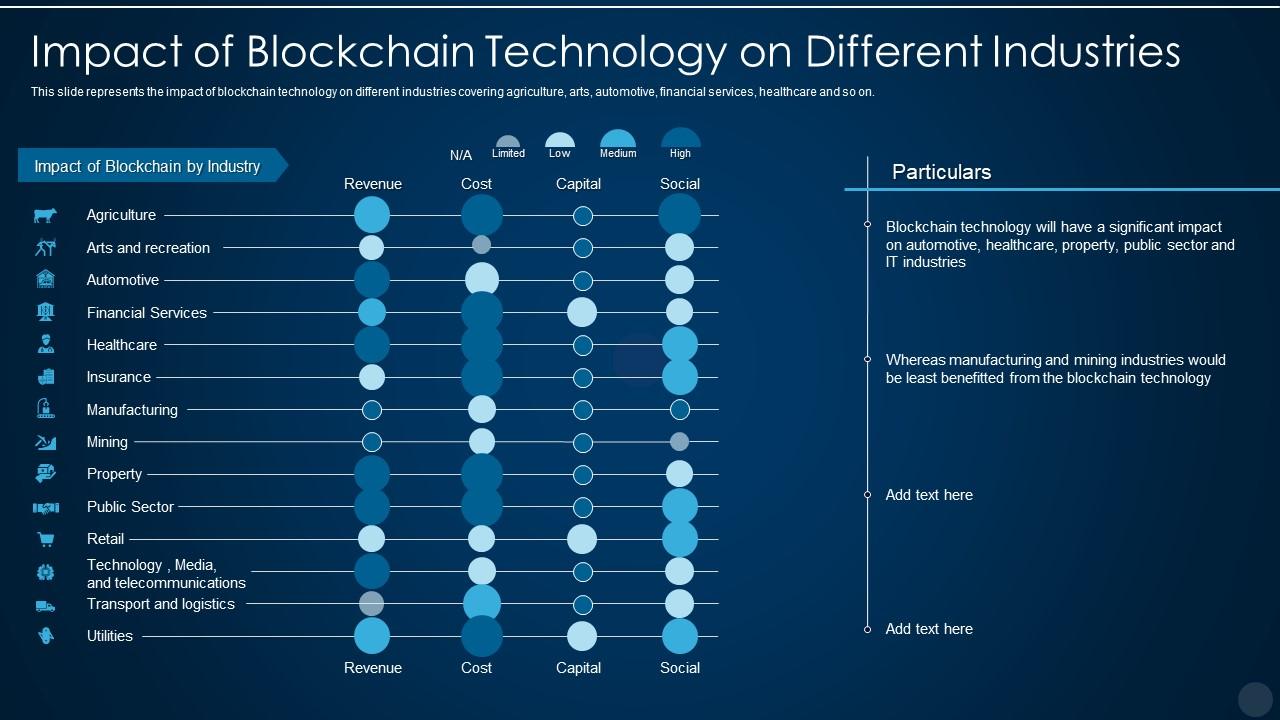Introduction:
Blockchain technology, the underlying technology behind cryptocurrencies like Bitcoin, has garnered significant attention in recent years. While initially associated primarily with the financial sector, blockchain has the potential to revolutionize numerous industries. Its decentralized nature, immutability, and enhanced security offer unprecedented opportunities for transparency, efficiency, and trust. This article explores the impact of blockchain technology on various sectors and how it is transforming them.
I. Healthcare Industry:
Blockchain technology has the potential to revolutionize the healthcare industry by enhancing data security, interoperability, and patient privacy. Medical records stored on a blockchain can be securely accessed by authorized healthcare providers, reducing administrative inefficiencies and ensuring accurate and up-to-date patient information. Furthermore, blockchain can streamline clinical trials, supply chain management, and drug traceability, leading to improved patient safety and faster access to life-saving treatments.
II. Supply Chain Management:
The use of blockchain in supply chain management can enhance transparency, traceability, and efficiency. By recording every transaction and movement of goods on a blockchain, stakeholders can track the origin, manufacturing process, and delivery of products in real time. This technology can help combat counterfeit goods, reduce fraud, and ensure ethical sourcing by providing an immutable and transparent record of a product’s journey from its source to the end consumer.
III. Finance and Banking:
The financial sector has been at the forefront of adopting Blockchain Development Services. Blockchain-powered decentralized finance (DeFi) platforms have emerged, enabling peer-to-peer lending, automated smart contracts, and secure cross-border transactions without the need for intermediaries. Blockchain-based solutions can also streamline the identity verification process, improve remittance services, and enhance the security and efficiency of payment systems, potentially reducing costs and eliminating the need for traditional banking infrastructure.
IV. Real Estate:
The real estate industry can benefit greatly from blockchain technology by simplifying property transactions, reducing fraud, and enhancing transparency. Blockchain-based platforms can streamline the entire process, from listing properties to conducting due diligence, verifying ownership, and executing smart contracts. By removing intermediaries, blockchain can reduce transaction costs, expedite the closing process, and provide a tamper-proof record of property ownership and history.
V. Energy Sector:
Blockchain technology holds significant potential for transforming the energy sector by enabling peer-to-peer energy trading, optimizing energy distribution, and improving grid management. Through blockchain-based platforms, individuals and businesses can directly buy and sell excess energy, promoting sustainability and reducing reliance on centralized energy providers. Smart contracts on the blockchain can automate transactions, improve billing accuracy, and enable efficient demand-response systems.
VI. Intellectual Property:
Blockchain can revolutionize intellectual property rights management by providing a secure and transparent platform for creators to register and protect their work. Artists, musicians, and content creators can use blockchain technology to establish ownership, track usage, and receive fair compensation for their creations. This decentralized system eliminates intermediaries, reduces copyright infringement, and ensures that creators retain control over their intellectual property.
VII. Voting and Governance:
Blockchain has the potential to enhance the security, transparency, and integrity of voting systems. By recording votes on an immutable and decentralized ledger, blockchain technology can eliminate voter fraud and provide a verifiable and auditable record of every vote. This can increase public trust in the electoral process and strengthen democratic governance by ensuring accurate and tamper-proof results.
Conclusion:
Blockchain technology is poised to revolutionize various industries by offering enhanced security, transparency, and efficiency. The healthcare, supply chain management, finance, real estate, energy, intellectual property, and governance sectors are just a few examples of industries that stand to benefit from blockchain adoption. As the technology continues to mature and gain wider acceptance, it has the potential to reshape business processes, increase trust, and drive innovation across multiple sectors, ultimately creating a more secure and interconnected world.



